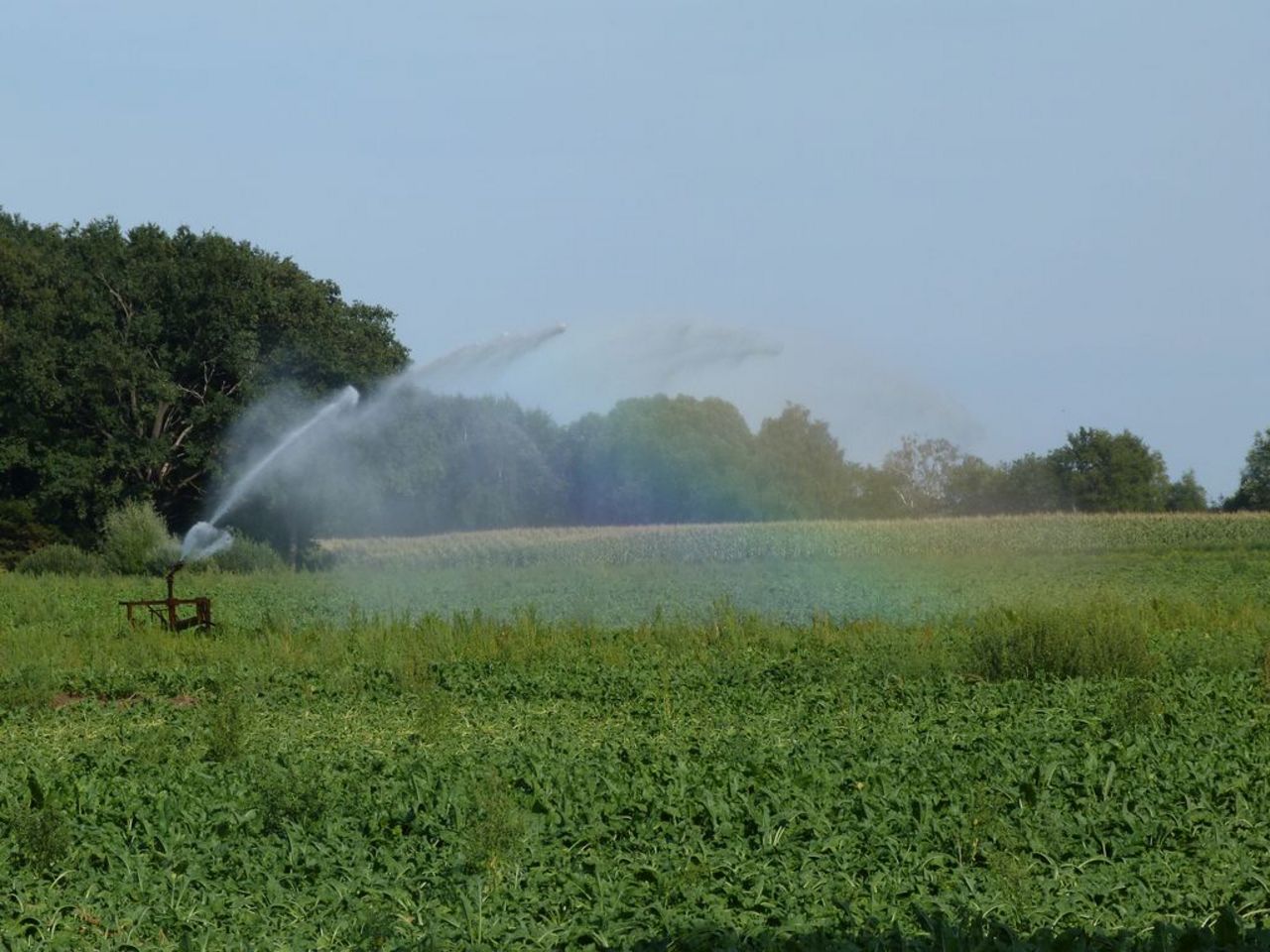Project
Future irrigation demands in North Rhine-Westphalia

Identification of regional irrigation demands for agriculture in North Rhine-Westphalia (ERB-NRW)
The production risk in agriculture is increasing, because climate change is associated with yield losses due to drought and volatile agricultural prices. Agriculture reacts by irrigating more intensively. Will future conflicts be caused by the use of water?
Background and Objective
The expected climate change can, on the medium to long term, lead to significant alterations of the natural and economic conditions with the agricultural sector particularly affected.
For North-Rhine-Westphalia it can currently be seen that average temperatures are rising and the amount of precipitation is changing, furthermore, precipitation is shifting from summer to the winter months. Thus, the beginning of the ground water use for example, has shifted from May into April. Water is proving to be a limiting factor of production. This trend is increasing in accordance with the climate forecasts which assume a decrease in precipitation in the growing season. As a result, yield losses are more likely, which not least due to rising agricultural prices, lead to higher production risk assessment estimates. Agriculture will adapt to the changing conditions and search for technical production solutions to stabilize the crop yield at a high level. Since increasing water consumption can enhance the existing regional land use conflicts, accurate information is needed in this field. This can be obtained with regionally differentiated analysis.
The main objective of the project is to find an approach with which the future water demand can be realistically estimated under climate change if intensive crops are irrigated. This is particularly necessary at the community level and for all of North Rhine-Westphalia. This approach should be extended to as many other regions of Germany as possible.
Target Group
policy makers, farm managers
Approach
In a first step, we have developed a model approach for the status quo, which reflects the actual agricultural irrigation needs at the community level. It takes into account, for example, the structure of agricultural production, the local conditions and the regional climate in the past. In a second step we also used results of the climate model WETTREG to depict the expectable climate change.
Taking into account the parameters' precipitation, evapotranspiration by plants, evaporation through the soil and the plant-available water in the rooted soil layer, we identified the need for four of the most important agricultural irrigation crops: sugar beets, potatoes, corn and wheat. We also determined the irrigation needs for thirteen of the most important horticultural crops, including cauliflower, French beans, peas, strawberries, carrots and onions. For those horticultural methods not explicitly shown, we took the average values of the depicted cultures in the respective regions to estimate the total demand.
Data and Methods
For this study we brought together a wide range of different information on regional differences at the community level region NRW.
Using this data, we analysed the potential regional irrigation needs. These calculations are based on statistical agricultural land use data, agronomic and soil science computational models of water demand, hydrologic information on water availability and the water balance of the model GROWA as well as different climate data sets of the German Weather Service and – with respect to the expected climate change – from the climate model WETTREG.
Results
Within the project we calculated the regional needs for water in agriculture for the status quo. Then we analysed the change in the irrigation demand due to climate change, to finally use these results for a comparison of the future irrigation needs with the recharge rates of the groundwater.
Thünen-Contact

Involved Thünen-Partners
Funding Body
-
Bundesland Nordrhein-Westfalen (NRW)
(national, öffentlich)
Duration
9.2010 - 3.2013
More Information
Project status:
finished
List of Publications
- 0
Schimmelpfennig S, Anter J, Heidecke C, Lange S, Röttcher K, Bittner F (eds) (2018) Bewässerung in der Landwirtschaft - Tagungsband zur Fachtagung am 11./12.09.2017 in Suderburg. Braunschweig: Johann Heinrich von Thünen-Institut, 161 p, Thünen Working Paper 85, DOI:10.3220/WP1515755414000
- 1
Anter J, Kreins P, Heidecke C, Gömann H (2018) Entwicklung des regionalen Bewässerungsbedarfs - Engpässe in der Zukunft? Thünen Working Paper 85:125-136
- 2
Kreins P, Henseler M, Anter J, Herrmann F, Wendland F (2015) Quantification of climate change impact on regional agricultural irrigation and groundwater demand. Water Resources Manag 29(10):3585-3600, DOI:10.1007/s11269-015-1017-8

![[Translate to English:] Logo des Bundesministerium für Ernährung und Landwirtschaft](/media/allgemein/logos/BMEL_Logo.svg)